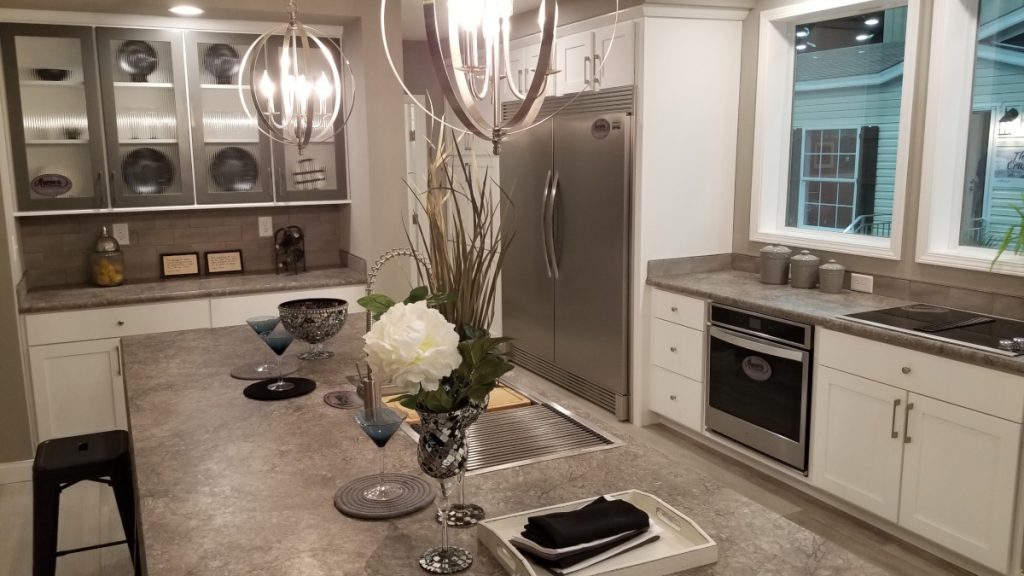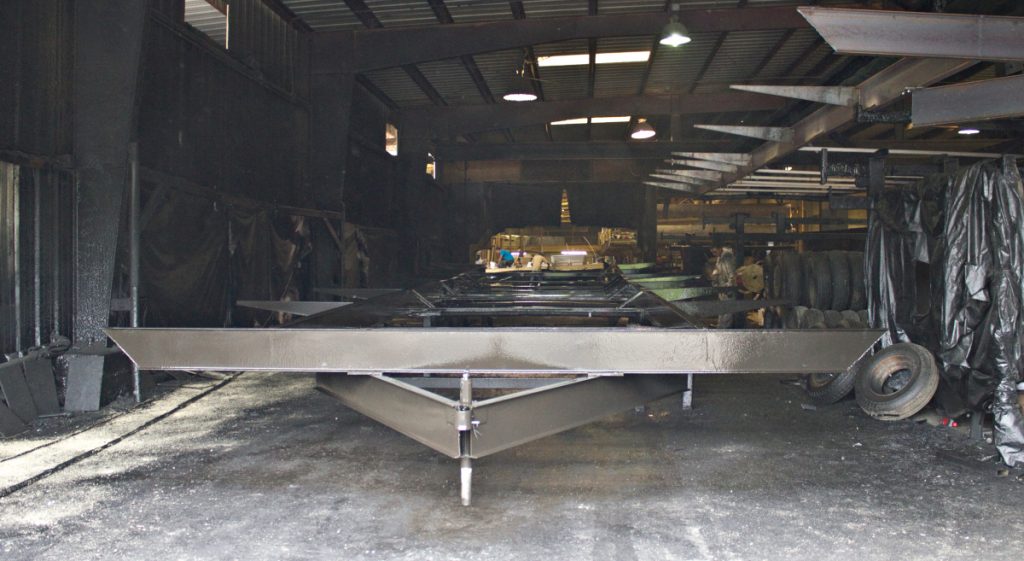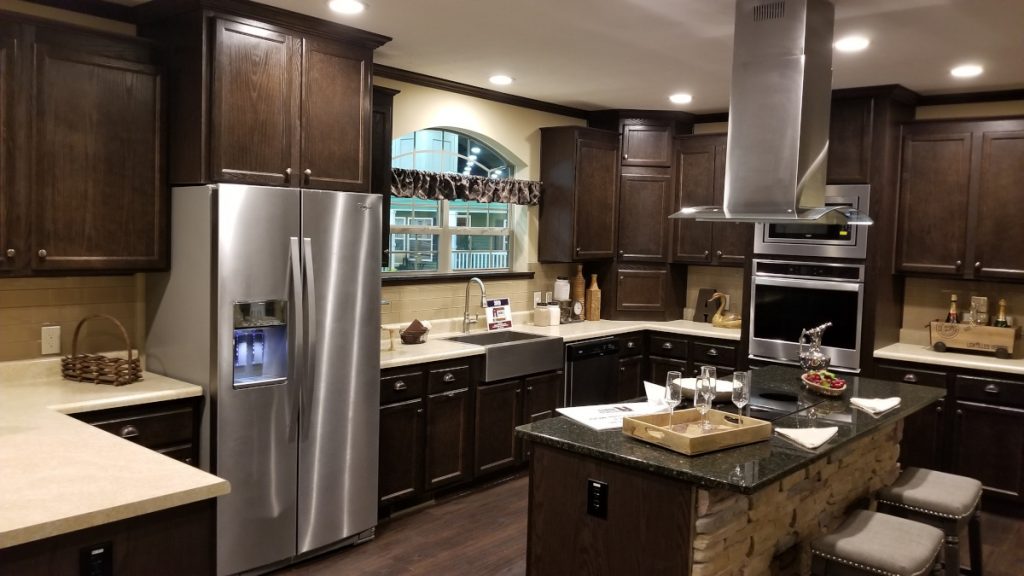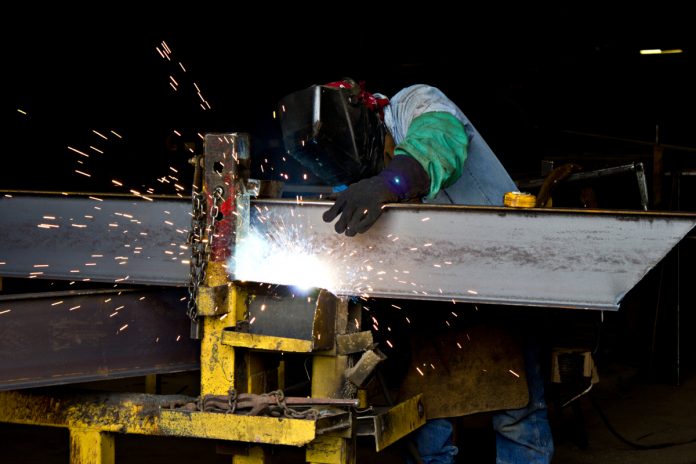Coronavirus Has Caused Lost Floors, Not Lost Days
Homebuilding and many aspects of the manufacturing sector are deemed essential amid coronavirus disruptions in most states, which means manufactured homes continue to be built. However, the process has changed and some disruptions have hampered productivity albeit slightly.
Barry Shein, the CEO of Commodore, operates three plants in Pennsylvania, which deemed residential construction non-essential through much of the early coronavirus response measures.
“We were closed for eight weeks in Pennsylvania and never closed any of our other three factories,” Shein said during a recent interview.
“I am amazed and cannot determine a rationale for why business is so good,” Shein said. “Our business in every region is way beyond what we can build, so our restriction is what we can build not what we can sell. And that seems to be the case with every price point.”
Shein said minor delays in sourcing materials to plants in operation have caused short delays that may have resulted in one fewer section or floor built on a particular day.
“We’re not real big on just-in-time delivery, so we have enough material including lumber on site,” he said. “We have higher inventories normally, and we anticipated shortages so we kept even higher inventories. Still, we’ve come close on some materials, but we’ve been able to do what we normally do and keep quality as high as always.”
“By the end of the year we will make up the lost production we endured,” Shein said, including the eight-week production lapse in Pennsylvania.

COVID-19 in the Workplace
Shein said the corporate offices in Indiana were disrupted for a short period following a COVID-19 positive test in the workforce. They closed the office for a day to allow a third-party cleaning company to come in. Some office employees continued to work from home, others were given the choice, and a few essential office practices continued on-site.
Questionnaires, temperature readings, hand sanitizer, masks, and spacing all play an important role in preventing illness both in the plants and at the corporate offices.
“So, keeping up with all the protocols has kept us on our toes, but we’re doing what we need to do to keep everyone healthy and safe,” Shein said. “I don’t see this going away soon, either, but we’re vigilant and we’ll continue the focus on building quality homes.”
Commodore also has modified its annual fall home show in Pennsylvania. Rather than having customers on-site at one time during a three-day show, the company will lengthen the show, and bring customers in by appointment.

Being Flexible with Processes, Employees
Cavco Industries, one of the nation’s largest manufacturers of factory-built homes, has had about 85% of its corporate staff work from home, and the company has all but eliminated work travel. However, the business of homebuilding must go on.
“We go through every plant over the phone, talking about attendance and supply issues. For a few weeks in March and April, it was a little touchy, like a day-to-day thing,” Cavco President Bill Boor said. “We had some difficulty for a while getting windows, and there continues to be some difficulty with appliances, particularly stuff coming from Mexico.
Akin to Commodore’s experience, Cavco has experienced an occasional slowdown but no major disruptions and the company continues to keep its focus on safety and quality.
“We’re telling our employees that if they’re uncomfortable for any reason, they can come talk with us and we’ll work something out,” Boor said. “You know, sometimes it’s not even anyone feeling ill, there may just be a heightened level of nervousness with everything that’s going on, and we’ll work with that.
“You have to be flexible,” he said.
Amid the added precaution and some supply-chain disruptions, demand has been strong.
“Interest rates have helped us and buyers have followed through,” Boor said. “It’s pretty amazing to watch.”

Keep People Employed, Keep Homes Moving
Rich Rice, the general manager for Adventure Homes, said the Garrett, Ind., facility shuttered for three weeks as a precautionary measure and all 220 employees continued to get the base pay without production bonuses. He said there continues to be an ebb and flow of team members who want to be tested for the virus, and the company policy is to allow them to go get tested regardless of symptoms. Again, the affected employee receives the standard rate until test results come back and the employee is cleared to return.
The use of thermometers, masks and shields, enhanced sanitation, distancing, and a high level of communication keeps the plant operating safely, he said.
“We’re adjusting our volume and complete the homes we can even if we’re down 25% of our staff,” a product of constant monitoring and good cross-training, Rice said.
“So, we’re not stopping the line at all,” he added.
Industry Best Practices for COVID Safety
Rice said one of the most encouraging aspects of the operation change in plants dealing with COVID-19 is the candid conversations he’s been able to have with other manufacturers about how their handling the crisis.
“That’s been refreshing, that the normal barriers went away as you have multiple businesses trying to get through this,” Rice said. “The camaraderie in the industry has been astounding.”
Sourcing building materials has been challenging at times, he said. But a finished home can wait for carpet, as needed. So, material deliveries need to be prioritized, Rice said.
“There are components that need to be put in on the line,” Rice said. “We call them line breakers… like you can’t even start unless you have floor joists and rafters.”
Lighting has been particularly difficult, Rice said.
“Every lighting fixture in the country has a component that comes from overseas, and if you reach back and use up all of the material you had with nothing new coming, you could be in trouble.
“So, we increased from a three-week lead time for supplies and material to five or six weeks,” he said. “That’s an investment, but it’s what you have to do to keep building and getting homes to customers.”










